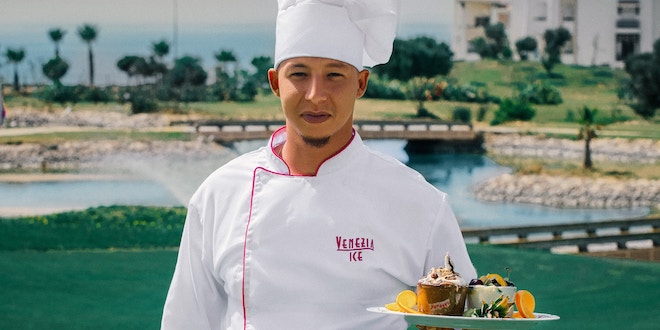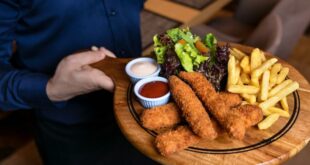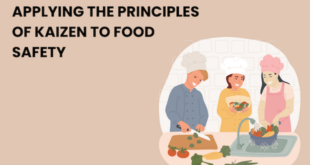Last Updated on November 28, 2023
Working as a private chef who travels the world is a dream for many. However, like any job, it also comes with challenges, especially when traveling regularly. As a traveling chef, your responsibilities will depend on your type of work. Some accompany their bosses whenever they travel to different places to provide personal meal services. There are also those working as freelance chefs, taking up jobs as they travel to various places.
Regardless of the type of travelling chef you are, it’s worth knowing some tips to help make travelling less hassle-free. So, here’s a guide to travelling as a private chef.
Planning is Key
Planning is crucial when working as a traveling private chef. There will be days where you will be cooking the entire day, and on some days, you will be doing a lot of preparation and setting up for future events. Unlike working in a commercial kitchen where you’ll have somebody else to help you, you only have yourself to rely on. Therefore, you must plan accordingly.
While most chefs work in a fully staffed kitchen, it’s more of a “one-man show” when you work as a private chef. It is like being the sous, commis, pastry, and head chef rolled into one. While it is not easy to be solely accountable, some chefs enjoy the challenge and freedom of working as a private chef. The key is to prepare. In fact, being a good planner is an essential skill that you need to have.
Some things to plan include the menus depending on their client’s diet preferences, whether vegan, gluten-free, vegetarian, etc. You also need to plan the storage of food and ingredients, time of cooking, cleaning up, sanitizing, and more. The list of tasks can vary depending on your client’s needs and the type of food you need to prepare for them.
Create Strong Relationships with Your Clients and Suppliers
Establish positive relationships with your clients and suppliers, so much so that they will refer you to others. Networking can go a long way when working as a private chef, and you have to be mindful of the image you portray to your clients and others. Plenty of things can come out of a mere handshake.
Building a good relationship is more than just preparing a nice meal. The real value comes from your impact on your client’s everyday life, such as creating a personalised menu or making the dish more appealing to elevate the overall dining experience.
Establishing a relationship with your clients takes time, effort, and skills that only come naturally to some chefs. The key is knowing your client’s likes and dislikes. Do not hesitate to ask questions to ensure that the food you prepare and cook for them exceeds expectations. Doing so can help establish trust with your client and confirm they made the right decision to hire you.
Supplier relations are as essential as client relations, especially in a competitive world. Most clients will be willing to hire a chef who knows the right people who can supply fresh and high-quality ingredients, which can go a long way in improving your professional reputation.
Understand Food Safety
Proper food safety and food hygiene practices are crucial in food preparation. As a private chef, you are responsible for your client’s safety by following proper food handling and preparation practices. Thus, taking food hygiene courses is crucial as a private chef. It offers an excellent way to equip yourself with all the information you need to prepare and make food safely. If you do not have adequate training on food safety, you can present health risks to your client.
For anyone who handles food, appropriate food safety training is a must. Therefore, as a private chef, you must prioritise food safety training. Everyone who prepares and cooks food should know the safety hazards and how to minimise and prevent contamination. The best way to educate yourself on food safety is by taking appropriate training, covering all food safety basics, including food safety hazards and best practices.
The content of the food safety training course will vary depending on the level. But it generally covers safe practices in food preparation, cooking, and handling. It also helps you to understand food safety terminologies and local regulations, recognise hazards, the right food temperature, clean, sanitising, allergens, and more.
Create an Experience for Your Guests
Impress your client by creating a memorable dining experience. There are various factors to consider to achieve this, from menu planning to presentation and service. By focusing on these elements, you can create an experience that will leave a lasting impression on your client.
When planning the menu, it’s crucial to understand your client’s dietary restrictions or preferences. These include allergies and special diets like vegan, vegetarian, or gluten-free. By accommodating these needs, you can ensure your client will have a great dining experience, free from worries.
The presentation is as important as the overall taste. Thus, one of the best ways to create an experience for guests is to use creative plating techniques to elevate the dishes’ visual appeal. You can use specially designed dishes or unique utensils to make the food stand out.
Pay attention to small details, such as the decorative elements and garnishes, which can affect the overall presentation. Arrange and present the dishes appropriately, and ensure the foods have the right portions.
Be Sure to Get Out and Explore on Your Days Off
The opportunity to travel and explore new places is the biggest perk of working as a private chef. So, take full advantage of this by getting out and exploring on your days off. Immerse in the local culture and discover the cuisines by going on a food tour or visiting local markets. On your market visit, you may even discover some local ingredients you won’t find anywhere else in the world. Being able to travel with your client opens you to the opportunity to explore a vast variety of cultures through gastronomic delicacies. As a chef, you know that food is almost always more delicious and authentic when you enjoy it in the country or place of origin.
 Travel for Food Hub The Food Blog for Travel Lovers
Travel for Food Hub The Food Blog for Travel Lovers
















